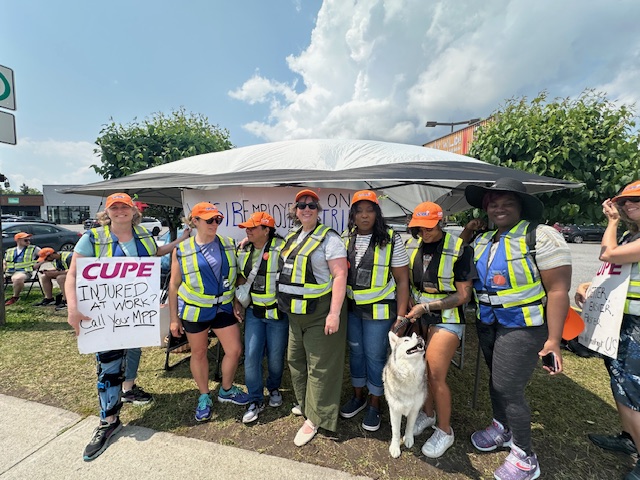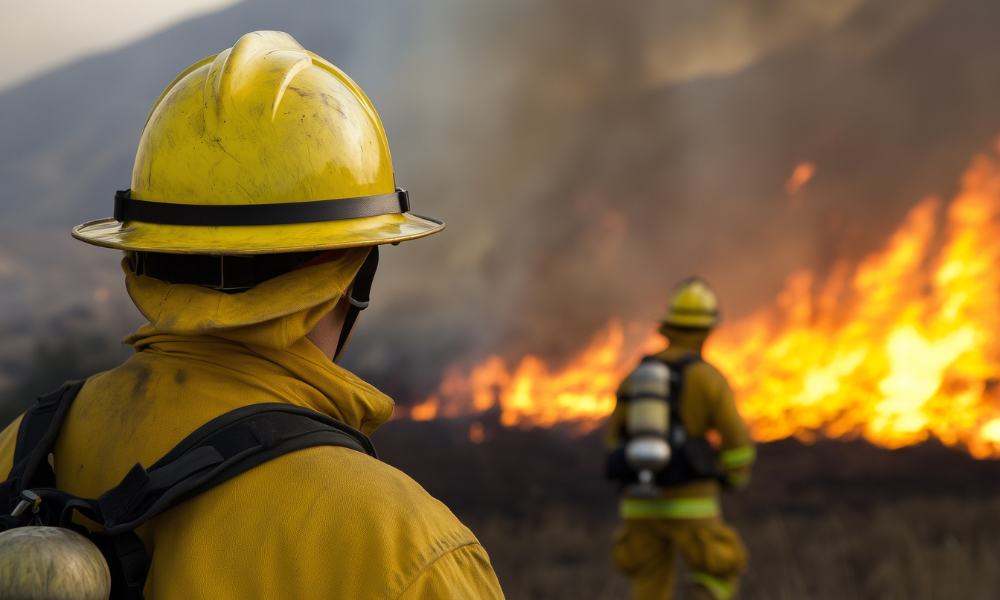Workers warned not to take unnecessary safety risks during clean-up operation

Armed with his tablet and phone, staying connected through data, Sam Sanderson works out of his vehicle in downtown Charlottetown because his office doesn’t have power. “We’ve had some pretty devastating damage here in PEI,” says the General Manager of the Construction Association of Prince Edward Island, which represents about 300 companies in the province.
“Our construction sector was severely stressed prior to the hurricane, but the hurricane has created stress levels far beyond anybody’s expectations,” says Sanderson. In his province alone they have about 1,500 vacancies for skilled trades positions, which is part of a country-wide labour shortage. It makes the clean-up from Hurricane Fiona harder, longer, and riskier.
Sanderson describes regular homeowners climbing on roofs, sorting through rubble, and clearing away piles of debris. “I couldn’t even ‘guesstimate’ the amount of roofs that need to be repaired or replaced, the amount of siding that needs to be replaced, and windows, and buildings that have collapsed.”
Read more: Devastating Fiona creates high-risk environment for rescue workers
Many of the province’s contractors put their actual jobs to the side to help with the recovery effort and they’re working alongside friends, families, and neighbours to help fix whatever they can. While Sanderson commends his membership for pitching in around the clock, he recognizes the inherent dangers.
“Everybody is stressed, and everybody is under pressure… people are going to take unnecessary risks,'' says Sanderson.
“How many people have chainsaws in their hands that don't have safety pants and safety boots and wear eye protection and wear hearing protection? How many people are working closely around power lines and not knowing if they’re charged or not?”
That’s why he’s imploring all of his members, as well as the general public to be patient and cautious. “We want to make sure everyone is aware and works safely and be patient…it will get done.”
Read more: Employer fined after worker dies from electrocution
An essential part of the recovery process is keeping the flow of critical supplies open. The federal government issued a special freight transport exemption to support the emergency response, which allows trucking companies to operate outside regular service hours.
“That was huge,” says Jean-Marc Picard, the Executive Director of the Atlantic Provinces Trucking Association. He says many of the trucking companies in the region have been called upon to help deliver necessities like food and water, as well as equipment such as telephone poles and wires to help in the recovery effort.
One of the areas most in need is Port aux Basque, Newfoundland. While the storm’s wrath can’t be understated, Picard is grateful it did not cut off access to the marines or shut down the ferries. “We’re still able to access the terminal and the ships and that was really critical to get products to Newfoundland, so we’re pretty lucky from that standpoint.”
Picard says Fiona’s overall impact on the transportation and trucking industry hasn’t been much worse than a really bad snowstorm. “Things got delayed for 24 hours or two days, I think that was the extent of the impact.”
It's an open lifeline that will prove critical in the coming days, weeks and months to help everyone impacted by Fiona recover from one of the biggest storms this country has ever seen.





